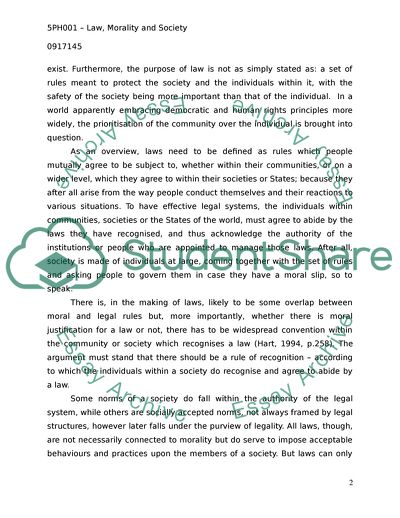Law, Morality and Society Coursework Example | Topics and Well Written Essays - 1000 words. https://studentshare.org/social-science/1764250-law-morality-and-society
Law, Morality and Society Coursework Example | Topics and Well Written Essays - 1000 Words. https://studentshare.org/social-science/1764250-law-morality-and-society.


